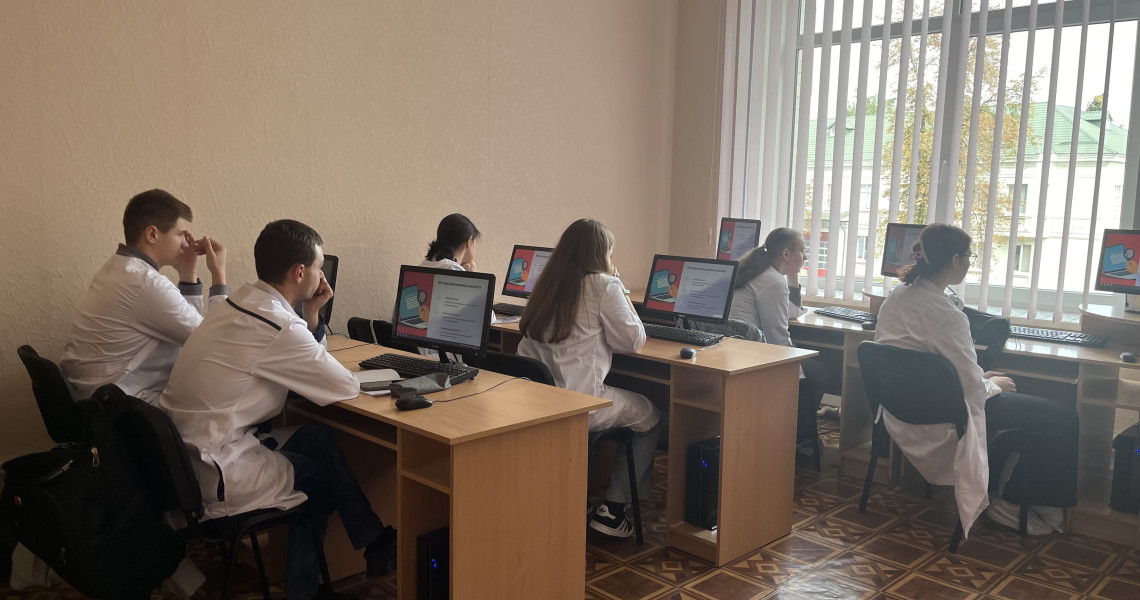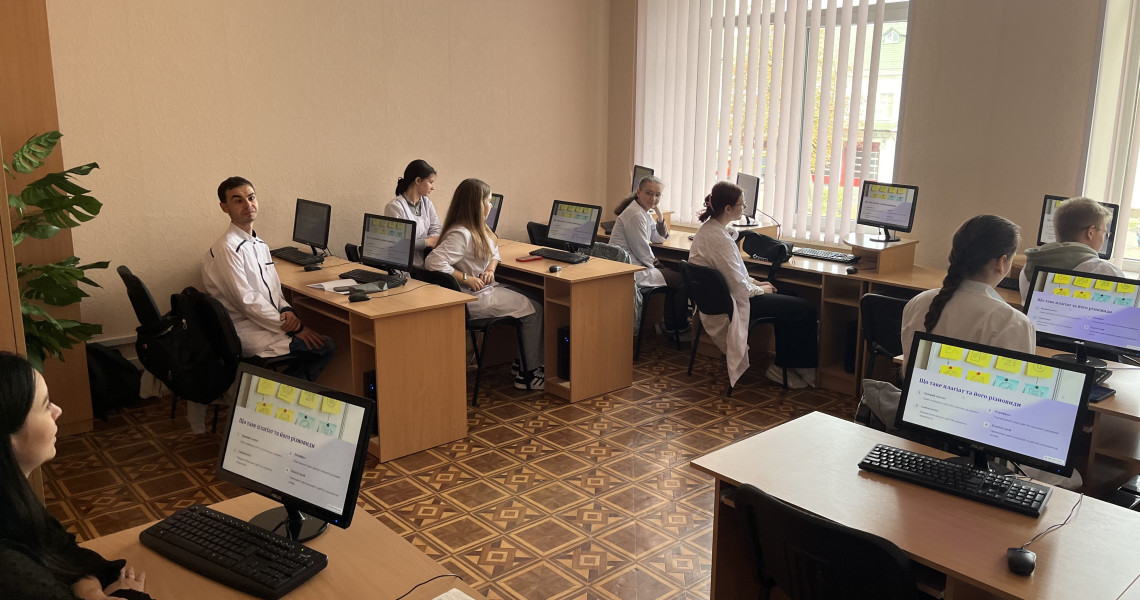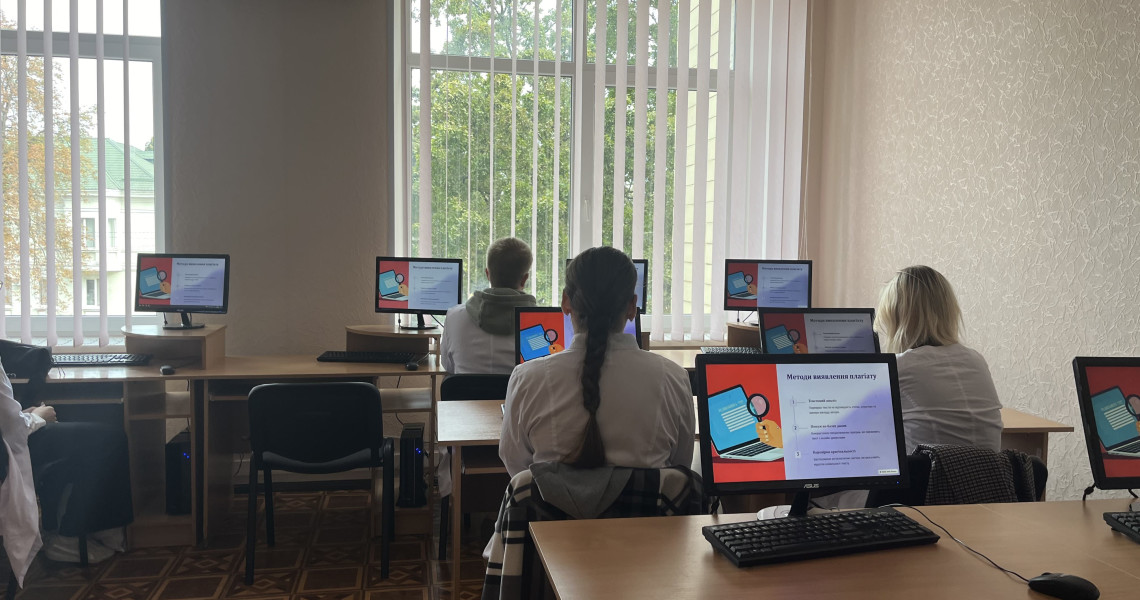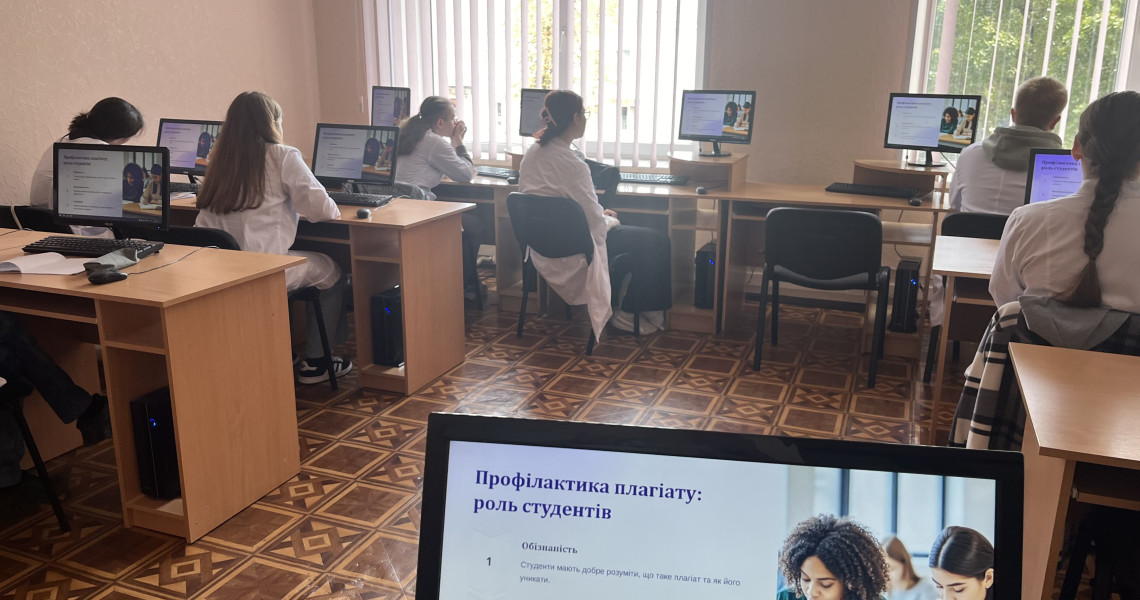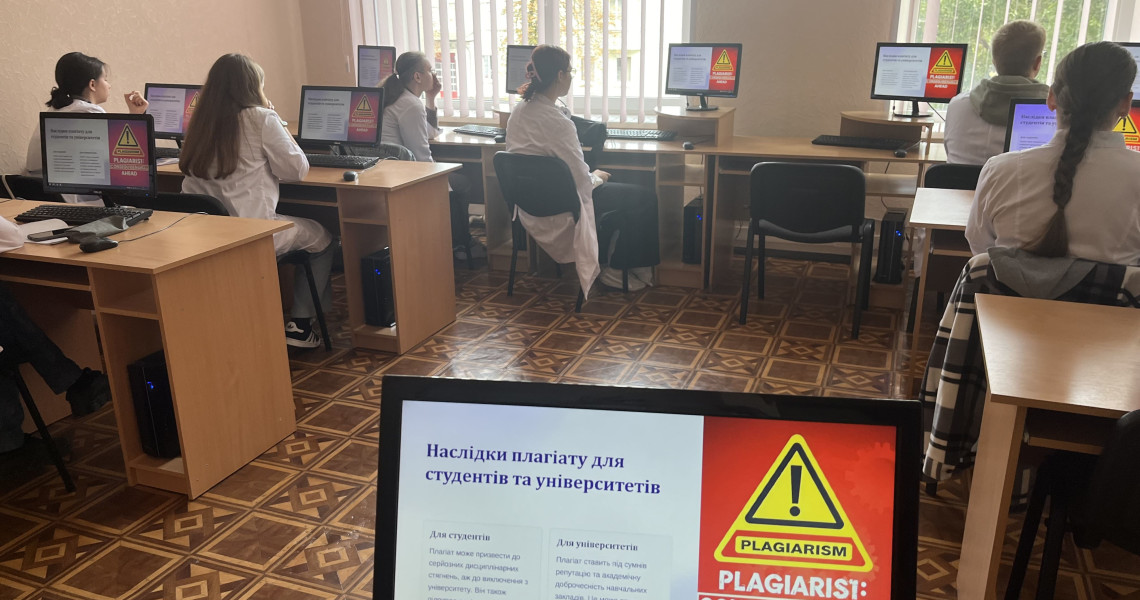4 жовтня 2024 року викладачка кафедри іноземних мов з латинською мовою та медичною термінологією Яніна Приходько разом зі здобувачами вищої освіти 17 групи 1 курсу ННМІ провела виховний захід, присвячений проблемі плагіату у вищій освіті, який є серйозним викликом для академічної спільноти. Плагіат негативно впливає на якість освіти, дискредитує досягнення студентів і викладачів та загрожує репутації закладів освіти. Захід охопив як теоретичні аспекти, так і практичні шляхи вирішення цієї проблеми. Основна мета заходу полягала у формуванні розуміння необхідності комплексного підходу до подолання плагіату. Було наголошено на важливості виховання академічної культури та посиленого контролю за виконанням наукових праць. Обговорювалися методи запобігання плагіату, використання сучасних технологій для перевірки наукових робіт, а також впровадження програмного забезпечення для дотримання академічних стандартів. Окрему увагу було приділено ролі університетів у забезпеченні академічної доброчесності через нормативні документи, що регулюють цитування, уникнення плагіату та етичні принципи наукової діяльності. Також розглянуто заходи підвищення обізнаності студентів про наслідки академічної недоброчесності та запровадження санкцій, спрямованих на профілактику порушень.
Захід підтвердив важливість об'єднання зусиль усіх учасників освітнього процесу для підвищення відповідальності за результати наукової та навчальної діяльності й забезпечення високих стандартів академічної доброчесності.
Plagiarism in higher education: problems and solutions
On October 4, 2024, Yanina Prykhodko, a lecturer at the Department of Foreign Languages with Latin and Medical Terminology, together with the 1st year students of group 17 of the MERI, held an educational event on the problem of plagiarism in higher education, which is a serious challenge for the academic community. Plagiarism negatively affects the quality of education, discredits the achievements of students and teachers, and threatens the reputation of educational institutions. The event covered both theoretical aspects and practical ways to solve this problem. The main goal of the event was to create an understanding of the need for a comprehensive approach to combating plagiarism. The importance of fostering academic culture and enhanced control over the performance of scientific works was emphasized. Methods of preventing plagiarism, the use of modern technologies to verify research papers, and the introduction of software to comply with academic standards were discussed.
Particular attention was paid to the role of universities in ensuring academic integrity through regulations governing citation, plagiarism avoidance, and ethical principles of scientific activity. Measures to raise students' awareness of the consequences of academic dishonesty and the introduction of sanctions aimed at preventing violations were also discussed.
The event confirmed the importance of combining the efforts of all participants in the educational process to increase responsibility for the results of scientific and educational activities and ensure high standards of academic integrity.






